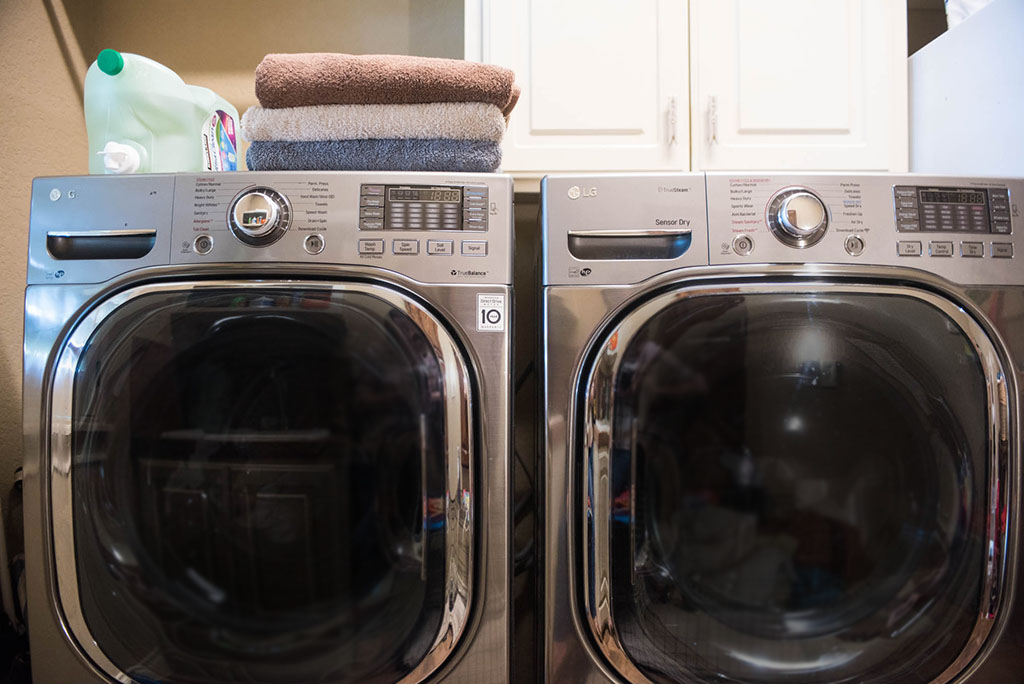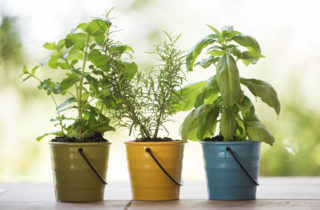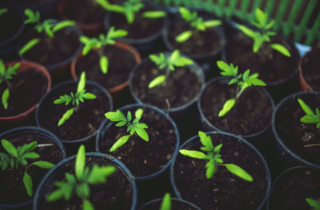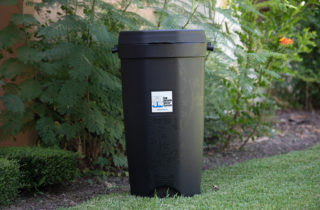Growing kitchen herbs is a win-win. You get to fill your yard or windowsill with…
To put it simply, high-efficiency (HE) appliances use less energy and water when they’re doing their thing. You can find HE versions of washers, dryers, dishwashers, and refrigerators—even ovens, stovetops, and air conditioners. HE appliances are not only great for the environment as they use up fewer fossil fuels—a non-renewable resource—but they keep your energy and water bill down, saving you a lot of money in the long run. Let’s break down how a few of the major HE appliances work and how you can get the most out of them.
Dishwasher
Dishwashers are at risk of using high levels of energy because they do a lot just in one cycle: heat the water to about 140 degrees, clean the dishes with the hot water, and then dry the dishes. HE dishwashers use only has much water as needed—generally four to six gallons per load—and only run for the amount of time necessary. Some HE dishwashers even have soil sensors which look at how much food is still on the dishes and cleans accordingly.
HE dishwasher pro tips:
- Always run a full load—it’s more efficient that way.
- For dishwashers with a soil sensor, don’t pre-wash, just scrape off loose food. If the sensor doesn’t see a lot of food, then it will do a lighter wash, which may leave some food leftover.
- If you can, turn off the heated-dry option and let the dishes air-dry.
Refrigerators
If you stop to think about it, refrigerators are the only kitchen appliance that hasto be on at all times. That means that it’s extra important to have one that uses less energy. HE fridges accomplish this with innovative features like door-in-door storage, which prevents the main storage from losing too much cold air and needing to re-cool, and temperature control, which prevents unnecessary energy use by only cooling the areas and drawers with food in them.
HE refrigerator pro tips:
- If your fridge is more than 10 years old, it’s time to replace it. Newer fridges are much more efficient due to stricter government requirements.
- Keep your fridge between 35 and 38 degrees.
- Leave a few inches between the wall and the refrigerator to allow air circulation.
- Minimize the amount of times the door is open—it really makes a difference!

Washing machine
According to Tide, HE washers use up to 80% less water than their traditional counterparts, deliver 65% energy savings, and can use three times less water. HE washing machines don’t have agitators (the tower in the middle of your washer that you have to put the clothes around) or have very low ones, which allows you to fit more clothes in. This is a better use of space as you can clean more clothes at a time, without using more water.
HE washing machine pro tips:
- Always use a detergent meant for HE washers; since less water is being used, HE washers need a low-sudsing detergent.
- Check your manual to see how many clothing items you can wash at once—and wash that much every time. It’s inefficient to wash several small loads instead of one large one.
- When loading your clothes in the washer, distribute them evenly around the drum instead of piling them all in the middle.
At SAWS, we’re all about conserving water and energy. Just like our water projects that produce drinkable water with minimal energy and conservation programs that encourage low water use, HE appliances only use what is necessary so that the planet and your household benefits in the long run.


